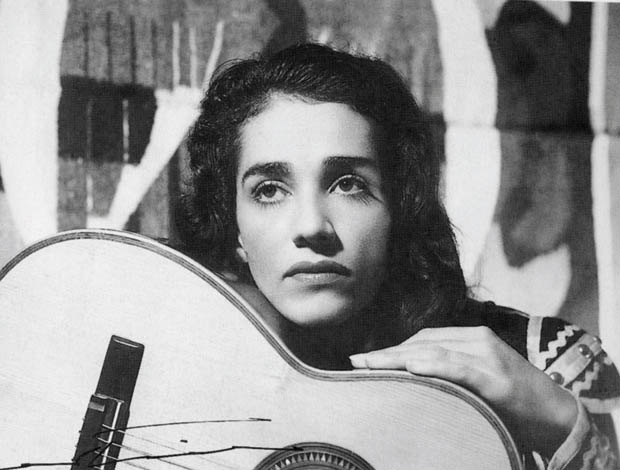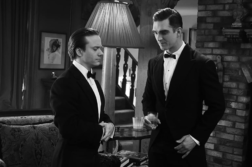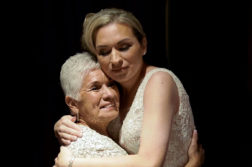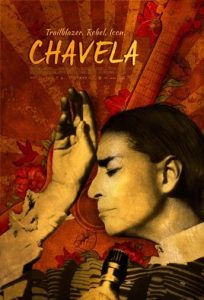 CHAVELA VARGAS (1919-2012) was a Mexican singer who was and remains iconic in Mexico. Chavela is a beautifully made documentary that has been playing the film-fest circuit and is set to open in wide release.
CHAVELA VARGAS (1919-2012) was a Mexican singer who was and remains iconic in Mexico. Chavela is a beautifully made documentary that has been playing the film-fest circuit and is set to open in wide release.
Born Isabel Vargas in Costa Rica, reviled from early childhood as not being like all the other little girls, she was rejected by everyone: her parents, her priest. She was entirely friendless and solitary, and she spent her long life struggling with her memories. When she was barely a teenager, she fled to Mexico City and changed her first name to Chavela, the name by which she would come to be known by fans. In one of many interviews, she says that given her masculine demeanor, dressing as a woman onstage made her look, in so many words, like a drag queen. Thus she took to wearing what became her signature poncho, a man’s shirt heavily embroidered with folkloric designs, and trousers.
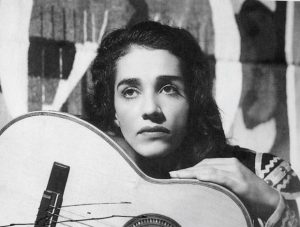 She had an extraordinary presence, a handsome woman absolutely in control of the stage. She usually sang rancheros, Mexican love songs that she inflected with same-sex undertones. Her heavy (cigar) smoking and drinking did not seem to impair her voice in any way, and several friends who were interviewed noted how she always felt the need to be more macho—or macha—than anyone else.
She had an extraordinary presence, a handsome woman absolutely in control of the stage. She usually sang rancheros, Mexican love songs that she inflected with same-sex undertones. Her heavy (cigar) smoking and drinking did not seem to impair her voice in any way, and several friends who were interviewed noted how she always felt the need to be more macho—or macha—than anyone else.
There are interviews with such luminaries as Pedro Almodóvar, who featured her music in several of his films, and Laura García Lorca, the New York-born niece of the poet. (Chavela had a deep love of Federico García Lorca’s poetry and felt there was a mystical connection between them, according to chavelavargasfilm.com.) Frida Kahlo, one of Chavela’s lovers, also appears in vintage footage of Mexico. Other interviewees were part of her inner circle. Several women remarked that all forms of sexual suggestiveness were allowed onstage, but offstage one had to remain closeted, untouched by “scandal.”
Chavela had many, many affairs—quietly, and often with wives of government officials. Her lost decade extended from the 1970s into the ’80s. She had fallen into a downward spiral of poverty and alcoholism, even resorting to drinking raw alcohol. Her lawyer, Alicia Pérez Duarte, who became her lover, was interviewed at length. In a wrenching segment, she recalled how Chavela abused her. She eventually told Chavela that she would walk away, and the drinking finally stopped. Chavela made her comeback after drying out and was terrified of going on stage sober, but managed to do so, time and again, in performances that were never less than electrifying. She fell in love with Spain and France, where she played to sold-out houses, and, while not mentioned in the movie, she also played Carnegie Hall in 2003.
This is a fascinating film, and the performance footage is wonderful. If it whets your appetite for Chavela’s music, there’s lots of it available on YouTube. She wrote three memoirs, none of which has yet been translated into English.
Chavela
Directed by Catherine Gund and Daresha Kyi
Aubin Pictures
Martha E. Stone is the literary editor of The Gay & Lesbian Review.


